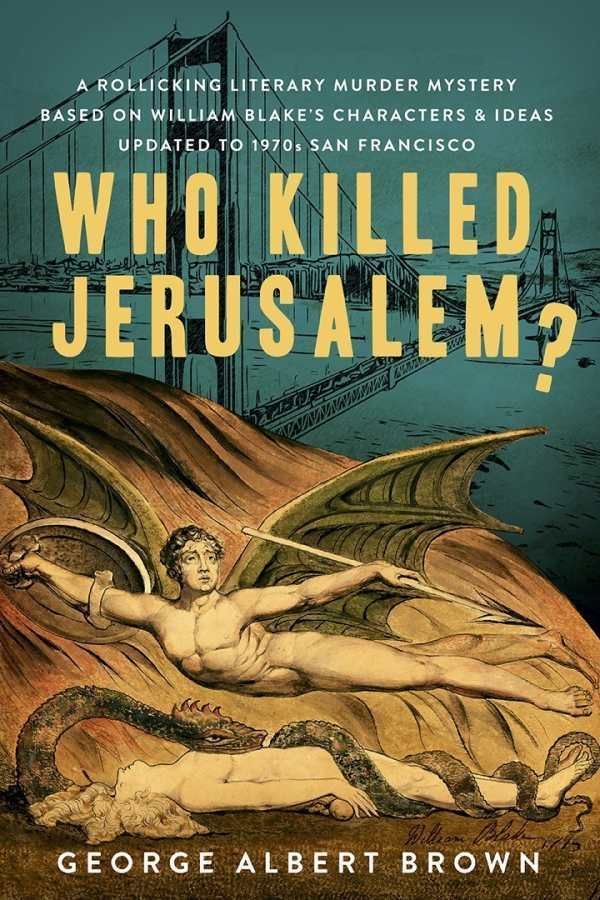
Who Killed Jerusalem?
A Rollicking Literary Murder Mystery Based on William Blake’s Characters & Ideas Updated to 1970s San Francisco
In the surrealistic mystery novel Who Killed Jerusalem?, an investigator seeks out the truth about a man’s death—and about ultimate reality.
In George Albert Brown’s philosophical mystery novel Who Killed Jerusalem?, a modern man’s metamorphosis evokes Greco-Roman epics.
Ded is a disillusioned life insurance claims adjuster in Buffalo, New York. After his wife left him, he became obsessed with sex. He often feels lonely and rejected. But then he travels to San Francisco to investigate the death of a poet, Jerusalem. Existential questions plague him in his pursuit of the truth, including about the nature of ultimate reality and beauty. He comes to use Jerusalem’s life and poetry as a proxy to better understand himself.
As Ded and those around him undergo a series of metamorphoses, Ded’s personal limitations are played out against a series of surrealistic encounters. His perspective is interspersed with lines of poetry from William Blake; with Jerusalem’s memories; and with references to philosophy, including to Plato’s cave metaphor. A disconnect between cultural norms and the truth of ultimate reality is invoked.
Ded, in interacting with the suspects of Jerusalem’s murder, becomes a vehicle for problematizing dominant social norms, too. His observations lead to questions around notions of premarital sex and conventional beauty; when he meets Jerusalem’s personal assistant, he beholds her form as a cow, and her exposed udder allures him. His morality comes to be tested in this and other ways his search for the ultimate truth.
Most of the novel is devoted to analyzing clues about Jerusalem’s life through philosophical dissections of his poetry, which Ded discovers by speaking to people whom Jerusalem knew in the months leading up to his death. Surrealism and metamorphosis play into these existential reflections, if with some repetition: the moon transforms into the assistant’s face in Ded’s dreams; a dog mounts Ded as he pores over Jerusalem’s poetry.
Graphic and comedic, the novel indulges in reflective, sometimes nonsensical, streams of thought. Still, the narrative’s primary problematiques—the state of beauty, the creation of the universe, and the nature of reality—are ably revealed through the artistry of Jerusalem’s life and Ded’s surreal experiences. However, though the novel’s concerns are entertaining and multitudinous, Ded’s personal goals are sidelined in their favor; his ultimate goals are obscured.
In the surrealistic mystery novel Who Killed Jerusalem?, an investigator seeks out the truth about a man’s death—and about ultimate reality.
Reviewed by
Aleena Ortiz
Disclosure: This article is not an endorsement, but a review. The publisher of this book provided free copies of the book and paid a small fee to have their book reviewed by a professional reviewer. Foreword Reviews and Clarion Reviews make no guarantee that the publisher will receive a positive review. Foreword Magazine, Inc. is disclosing this in accordance with the Federal Trade Commission’s 16 CFR, Part 255.
